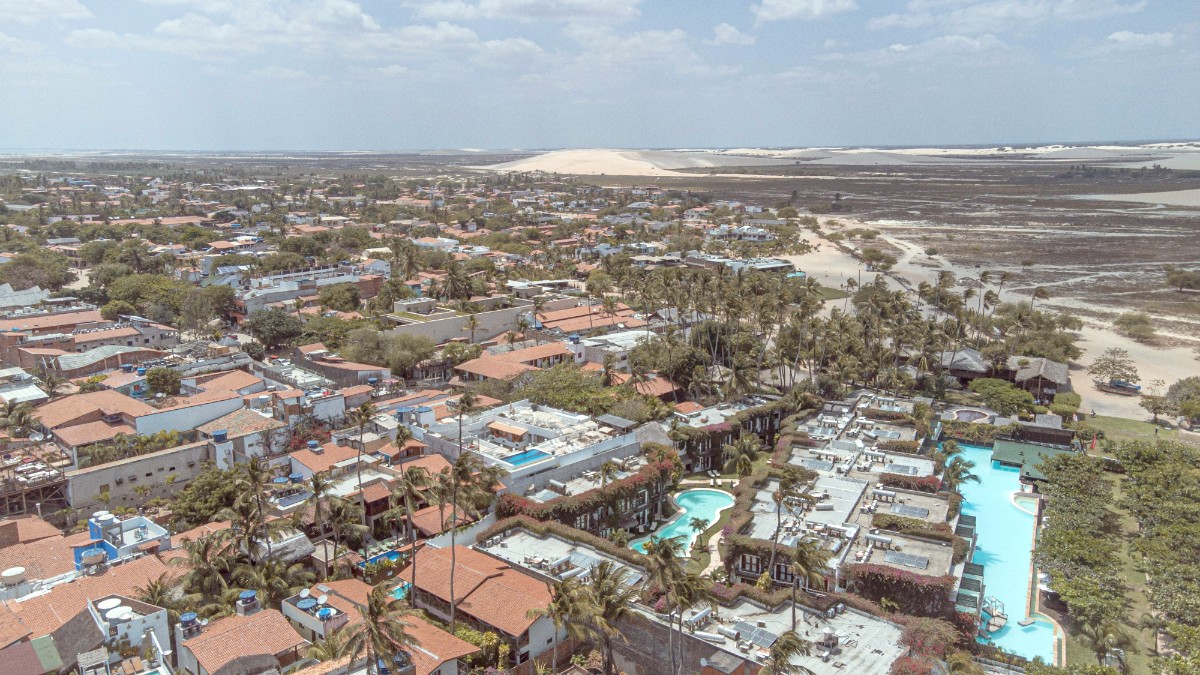
The Northeast, Brazil
The dry season, also known as the high wind season, runs from July to January. This period brings strong, consistent winds, making it perfect for wind sports. Rain is rare or absent during these months. The skies are usually clear, offering plenty of sunshine. Temperatures remain warm, though the constant breeze makes the heat pleasant. This season offers predictable weather for outdoor activities, with low chances of rain disrupting plans.
The wet season, or low wind season, occurs from February to June. This time of year sees higher humidity and more frequent, though typically brief, rain showers. Winds are lighter compared to the dry season but still present. Rainfall tends to come in short, intense bursts, often in the late afternoon or overnight, leaving many daylight hours sunny. Lagoons, fed by the rain, reach their fullest and most inviting levels.
Kitesurfing and Windsurfing: The best time is the dry season, from July to January, which is the peak wind season.
Dune Buggy Tours and Lagoon Visits: Enjoyable year-round. Lagoons are fullest and most beautiful during and immediately after the wet season (March to July).
(July to January)
Excellent wind sport conditions, guaranteed sunny days, lively atmosphere.
Higher prices, more crowds, especially around national holidays.
(February, June)
Fewer crowds, slightly lower prices, generally good weather for many activities.
Transitional weather, winds not as consistent as peak high season.
(March to May)
Significantly fewer tourists, lowest prices, lush green landscapes, full lagoons.
Frequent rain showers, weaker winds for dedicated wind sports, some establishments might reduce hours.
Jericoacoara is not directly affected by hurricanes. While the wet season brings rain, it does not experience monsoons in the traditional sense. Temperatures stay warm. Strong winds during the dry season create dusty conditions, so eye protection like sunglasses is a good idea.
Peak wind season from July to January.
Enjoyable year-round, lagoons are fullest March to July.
A daily activity, enjoyable regardless of the season, with stunning colors.
Low season (March to May) offers calm, fewer crowds, and good deals on lodging.
Consult Windguru for precise conditions if wind sports are a main focus.
Travelers to Brazil need to understand the current visa and entry requirements. These rules vary based on your nationality. Always consult official government sources before your trip, as regulations can change.
Your passport must remain valid for at least six months beyond your planned stay. Have proof of onward or return travel to show intent to leave Brazil. Maintain evidence of sufficient funds for your trip, like bank statements or cash. Keep confirmed accommodation bookings readily available.
Travelers typically complete an immigration card upon arrival. One part of this card is given back to you. You must keep this portion until your departure from Brazil. Losing it can cause delays or fines. Jericoacoara charges a mandatory environmental preservation fee.
Tap water in Jericoacoara is generally not safe to drink. Rely on bottled water for drinking and brushing teeth. Choose restaurants and food stalls that appear clean and busy, indicating good turnover of ingredients. Hot, freshly cooked food is usually safer than raw or cold items.
Daily costs are estimates. They are subject to significant fluctuation based on travel style, season, and personal spending habits. These figures provide a general guideline.
Budget traveler: R$150-300 per day (hostel, street food). Mid-range traveler: R$300-700 per day (comfortable pousada, mid-range dining). Luxury traveler: R$700+ per day (boutique hotel, fine dining).
Notify your bank of travel plans to prevent card issues. Carry small denominations of Brazilian Real for street vendors, local buggies, and places that do not accept cards.
Hostel: R$50-90; Basic Pousada: R$100-250; Luxury: R$500-1500+
Street food: R$10-30; Mid-range: R$60-120; Fine dining: R$150+
Shared 4x4 from Fortaleza: R$150-300; Buggy tour: R$300-600/buggy.
Environmental Fee: R$41.50/day; Kitesurf lesson (1 hr): R$150-250.
10% service charge often included in restaurants. Tour guides/buggy drivers appreciate R$20-50 per person for full-day tours.